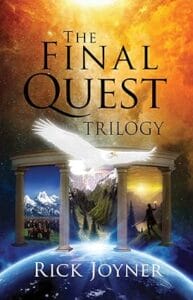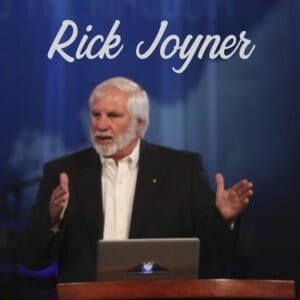As we have covered, the first sentence of Revelation is the compass that we must follow to stay on course to understand its vision. It is, “The Revelation of Jesus Christ, which God gave Him to show to His bond-servants” (see Revelation 1:1). This is a revelation of Jesus Christ to His bondservants. So, this revelation is for those who have this discipline and life as a bondservant of Christ.
This does not mean that we cannot understand some of the things in Revelation—and maybe even a lot—before we are a bondservant. If we are not yet walking in the consecration of bondservants, we’re told anyone who just reads it will be blessed. Anyone who has moved to the discipleship level is seeking more than just a blessing. They want to have knowledge and understanding that can be applied to their life and to have a view of the times with the wisdom to use this knowledge practically and effectively for the purposes of Christ in them.
So, without the bondservant mentality, we may not be able to grasp all of the Revelation, but what we can understand will be helpful. Let us use any inability to understand aspects of this vision to inspire us to go higher and deeper with the Lord.
The next statement in the vision adds that it is about “the things which must soon take place” (see Revelation 1:1). We also want to know the prophetic unfolding of events that began to take place immediately after John had this vision, how they continued to unfold throughout the age, and what is left to unfold in our times.
One must have a knowledge of history to perceive this. It is a great advantage for us to be living now, at the consummation of this age. In the first century, the prophecies had to be viewed “through a glass darkly” (see 1 Corinthians 13:9-12). The last generations of this age will be able to look back at most of what has already happened. We will see in this study how remarkably accurate this Revelation was in foretelling some of the most important events and factors of the entire church age. Knowing this, we can more clearly see and understand what has not yet been fulfilled, so we can expect it.
As we repeat often, “The main thing is to keep the main thing the main thing,” and the main thing in The Revelation is Jesus. As we are told in Scripture, “All things were made through Him and for Him,” and “in Him all things hold together” (see Colossians 1:16-17). He is the centerpiece of all understanding, especially of understanding history. The very word “history” comes from merging the words “His” and “story.” History is His story!
It takes this Christ-centric vision that we develop as a disciple, and then mature in as a bondservant, to see Him and His purpose in all things. As John wrote in the first sentence of his gospel, “In the beginning was the Word, and the Word was with God, and the Word was God. He was in the beginning with God. All things came into being through Him, and apart from Him nothing came into being that has come into being” (John 1:1-3).
Is this the way we see our world? Is this the way we see history? How about the news today? Can we see Him in all that is happening? Those who are disciples of Jesus will begin to see this way. As we mature in this vision and become a bondservant, then all that we are and aspire to is found in Him. We will surrender our goals and purposes to His, with the ultimate goal of being able to say with the Apostle Paul in Galatians 2:20, “I have been crucified with Christ; and it is no longer I who live, but Christ lives in me.”
We will never make a better trade than this. Even the greatest human, earthly, temporary positions we can attain in this life cannot compare to the smallest of what we will attain in Christ—and these are eternal! When we are doing all things for Him and begin to see Him in all things, including history, we will begin to see Him more in the present and the future as well.
In this study, we are not just seeking understanding; we’re seeking a Person. And we’re not just seeking an understanding of Him, but we are seeking to know Him, get closer to Him, and become like Him so that He can use us to do His works, today and every day.























Comments are closed.